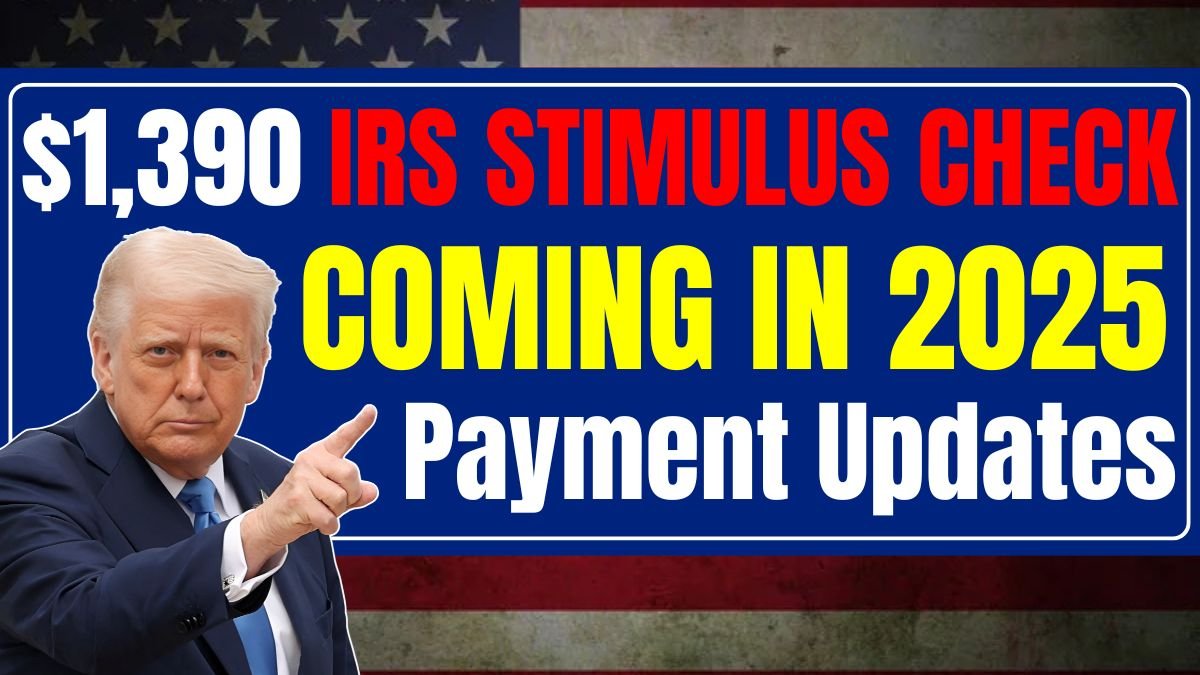$1,390 IRS Stimulus Check Coming in 2025 – Negotiations on a large economic relief package are under way in the US, and the proposed one of $1,390 in stimulus payment is expected to be issued in the next month. This cost revenue type of scheme is customized to assist low-income earning and middle incomes. This check, which will be issued by the Internal Revenue Service (IRS), will start entering the bank accounts or addresses of the citizens who will receive it very soon.
The goal that can be identified with the government is to directly grant the financial support to families that have to struggle under the pressure of inflation, rent, and other basic needs. This value will be tax exempted and it will not have to be included in the coming year tax returns income. It will not impact on benefits such as Medicaid, SNAP (food stamps) or housing assistance as well.
Purpose and benefits of stimulus check
The primary primary objective of the stimulus payout is to ensure that the people are in a position to cover their basic necessities by making them financially stable. Without a doubt, the American families know how rough it can be to meet the rent payment and necessary expenses. This payment can come out as a big relief in such a situation.
The biggest feature of this payout is that it is completely tax-free. That is, no additional tax will be levied on it and this amount will not be included in your income while filing taxes next year. Apart from this, it will not reduce or eliminate any government benefits.
Who is eligible? – Eligibility Criteria
Only those whose income and tax status are within the prescribed limit will get the benefit of this scheme. The government has set some criteria for eligibility:
- Single taxpayer: Annual income up to $75,000
- Married couples (joint filing): Annual income up to $150,000
- Head of household: Annual income up to $112,500
If you have received stimulus payment earlier and there has been no major change in your income, then you are likely to be eligible this time too.
Other necessary conditions:
- You must be a US citizen and have a valid Social Security number.
- You must have filed a recent tax return (2023 or 2024).
- You are not included as a dependent in someone else’s tax return.
When will the payment be received? – Expected Payment Date
The official date has not been announced yet, but it is expected that this payment will start in mid-summer 2025.
- The money will be received first by Direct Deposit recipients as long as the IRS has accurate and up to date information regarding your bank account.
- Recipients of paper checks and prepaid cards might have to be adjourned.
- Therefore, in order to have the money in time then it is essential to ensure your bank details in the online account of IRS (irs.gov) remains current.
How You’ll Get Paid
The government has made arrangements to send payments in three main ways:
- Direct Deposit – The fastest and safest way.
- Paper Check – If bank details are not available, the check will be sent to your address.
- EIP Debit Card – Some people will get payment in the form of a prepaid debit card.
Avoiding Scams
As the buzz about stimulus payments is increasing, scammers have also become active. Some scammers are using fake texts, emails, and websites to trick people into giving them Social Security numbers, bank details, or money in the name of “processing fees.”
Remember:
- The IRS will never contact you via text, email, or social media to ask for personal information.
- Only trust official government websites like irs.gov or treasury.gov.
Conclusion
This $1,390 stimulus payout will bring a sigh of relief to millions of families in America. If you are eligible, update your information in time and beware of fraud. This plan is an important step for people struggling financially, helping them overcome tough times.
FAQs:
Q. How much is the stimulus payout?
A. $1,390 for eligible recipients.
Q. Is the payout taxable?
A. No, it is tax-free.
Q. Who is eligible?
A. Single filers earning up to $75,000, joint filers up to $150,000, and heads of household up to $112,500.



